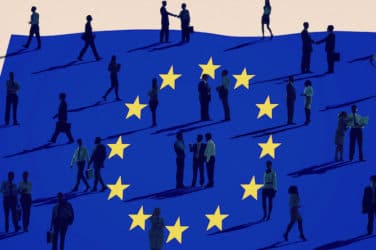
With trading volumes in Europe low and spending on technology being reined in by many market participants to save on costs, it appears that this technological race to zero latency—in a bid to shave a millisecond or more off your rival—may be dwindling.
At Markets Media’s inaugural European conference in the plush surrounds of the May Fair hotel in central London late last week, delegates heard that there appears now to be less of an economic benefit to be derived from being the fastest trader on the block as the technological costs involved in becoming slightly faster than your already fast rival by designing your own proprietary systems can be extortionate.
“I do think the speed game is over as the speed of light is finite,” Jose Marques, managing director and global head of equity electronic trading at Deutsche Bank, Germany’s largest bank, told Markets Media’s European Trading Investing Summit on October 11.
“You have a boundary out there and what happened is we have had a revolution in trading technology first seen by the early adopters—the liquidity providers and some HFT buy-side firms.
“But what you have seen now is a tremendous amount of investment of that sort of technology by the sell side. And now it has become very democratic. Any client anywhere can have access to the latest and greatest technology so it is a relatively level playing field.”
Impending regulations, too, in the form of MiFID II, for example, that promises sweeping reforms to Europe’s financial markets and is aiming to slow down high-frequency trading, which has always been at the forefront of trading technology, could also nip further advancements firmly in the bud.
“Investment in speed regards to technology will rationalize if it hasn’t already,” said Rob Maher, managing director of the investment banking division at Credit Suisse, a multinational financial services firm.
“Given the current market conditions and the possible regulatory requirements I don’t think a lot of people will be spending a lot more money to get that extra microsecond quicker.
“There will be a lot of outsourcing of the core technology. The value proposition is not going to be there to get that next little edge.”
Alasdair Haynes, the former chief executive of Chi-X Europe, who plans to launch a new alternative trading venue in Europe called Aquis Exchange early next year, concurred that these regulations in the pipeline could stifle technology.
“It seems that Europe wants to reduce volumes of trading,” he said. “It is all about innovation in technology—which has brought in lower latency and greater capacity and, in effect, cheaper trading and cheaper costs—but these regulations will affect innovation in technology.”
However, some market participants, especially buy-side institutional investors, have never relied heavily on speed, although important, to garner extra profits.
“I never bought into the fact that speed was essential depending on your style of trading,” said Toby Bayliss, head of portfolio and algo trading in Europe for Sanford C. Bernstein, the sell-side research unit of asset manager AllianceBernstein.
“There are ways you can trade and not be as fast as someone in the market, as there will always be someone faster than you, and still perform better by being slightly smarter. But there is still a drive to find those differentiators. It is not necessarily focusing on speed but focusing on different ways to add short term alpha and performance into your execution.
“The focus is not going to be on knocking off a microsecond but focusing on how you can pick your points in the market that little bit better or understand an order type that little bit better.”





